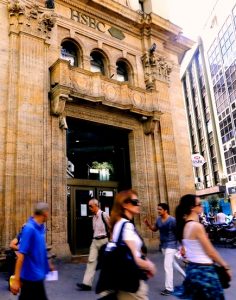Washington DC defines tax havens, then taxes them
The city of Washington DC has become the latest US government to take on tax havens. The city will now directly tax the income of companies made in a number of tax havens.
The legislation works by requiring companies that do business in the District to report how much income they make in tax havens outside of the United States. Washington DC will then add that money to the taxable income of that company.
Several US States have passed similar legislation but few have defined what they mean by a tax haven leading to concerns that the rules are ineffective.
The DC law requiring companies to report tax haven activity was first passed in 2012. Now a new law passed by the DC legislature a few weeks ago for the first time defines which countries are defined as tax havens. In total DC has put 39 countries on its blacklist. A full list can be found here.
According to the budget’s impact assessment the DC government expects to collect around $3.7m in additional taxes a year from the single act of creating the list.
Argentina hits HSBC executives
Argentina has taken the step that many other jurisdictions around the world have seemed too timid to do and revoked the banking license of senior executives from a major bank.
The Argentine Central Bank has said that executives at HSBC Argentina failed to implement internal and external controls.
The move is part of the Argentine authorities’ on-going dispute with the bank over the 4,000 accounts held by Argentine citizens at HSBC Switzerland.
UK backs down on fight against tax havens
Tax havens across the world proudly fly the British flag. Once part of an expansive empire on which the sun never set, today places like the Cayman Islands, the British Virgin Islands and others have been described as sunny places for shady people.
After tax havens became increasingly unpalatable in the face of mounting scandals the UK government finally promised to take action on its state sponsored dirty money laundry.
In 2013 the UK Prime Minster David Cameron wrote to all of the heads of government of Britain’s Overseas Territories to ask them to improve financial transparency. In a series of meetings and letters he was very clear on what the UK government demanded. A central register of the beneficial ownership of companies that would be accessible to the public.
However, roll on August 2015, and roll over the UK government. In a recent trip to the Cayman Islands the Foreign Office Minister Grant Shapps appears to have backed down saying that there was “more than one way to skin a cat”, and was confident that the UK could find agreement on a way forward with the Caymans, who until now have resisted any move to have a public register.
Subsequently Grant tried to claim that all he was doing was stating the UK government position which allowed some leeway in how countries implemented a register, but the Caymans PM said that the UK had appeared to have “moved its position” allowing him to claim a key victory in his fight against transparency.
Money laundering checks
The UK new bonhomie with the Caymans comes at a time when the ‘mother country’ is busy watering down its own rules, in a move that can only be seen as disturbing for financial integrity.
The UK’s own implementation of a register of company ownership has been delayed due to ‘technical difficulties’ as has the general prohibition on corporate directors. The latter required that company directors had to be actual people and not shell companies in places like the Caymans.
But of greatest concern is the revelation that business finds complying with anti-money laundering regulations too costly, and has managed to persuade the UK government that the time has already come to relax the rules.
The government has announced a review of anti-money laundering rules. Although the government claims this is about making the AML regime more effective to allow banks to dedicate more resources to rooting out criminality from its systems, the rhetoric which says that this is also about cutting costs is at best contradictory.
Rangers falls foul of the offshore game
One group of people in the UK who might have wanted more regulations on benficial ownership and money laundering are fans of Rangers football club.
A former owner of the club was arrested and charged with fraud and organised crime last week, with related charges levelled at the erstwhile administrators. At the centre of the case is the liquidation of Rangers in 2012, and the subsequent sale of the assets to form a new club.
While details of the case remain unclear and are now sub judice, it has been alleged that anonymous offshore companies were used to facilitate continued ownership by the same people. This had the effect, it is alleged, of defrauding the creditors of the original club who presumably include the tax man, as the company still has large outstanding tax bills. Other allegations include the possible involvement, again hidden by shell companies, of one of Interpol’s most wanted fugitives.
Rangers are of course not the only club with offshore owners, the TJN recently published a study of offshore ownership in UK football which can be found here
New tool for financial information launched
Arachnys, a company working on due diligence has published a new tool which may be of use to investigators. Arachnys Compass, is a free tool which checks the availability of data worldwide.
The tool gives users an indication of what information is available online about companies and courts and where you can find it. Check it out here








Leave a Reply